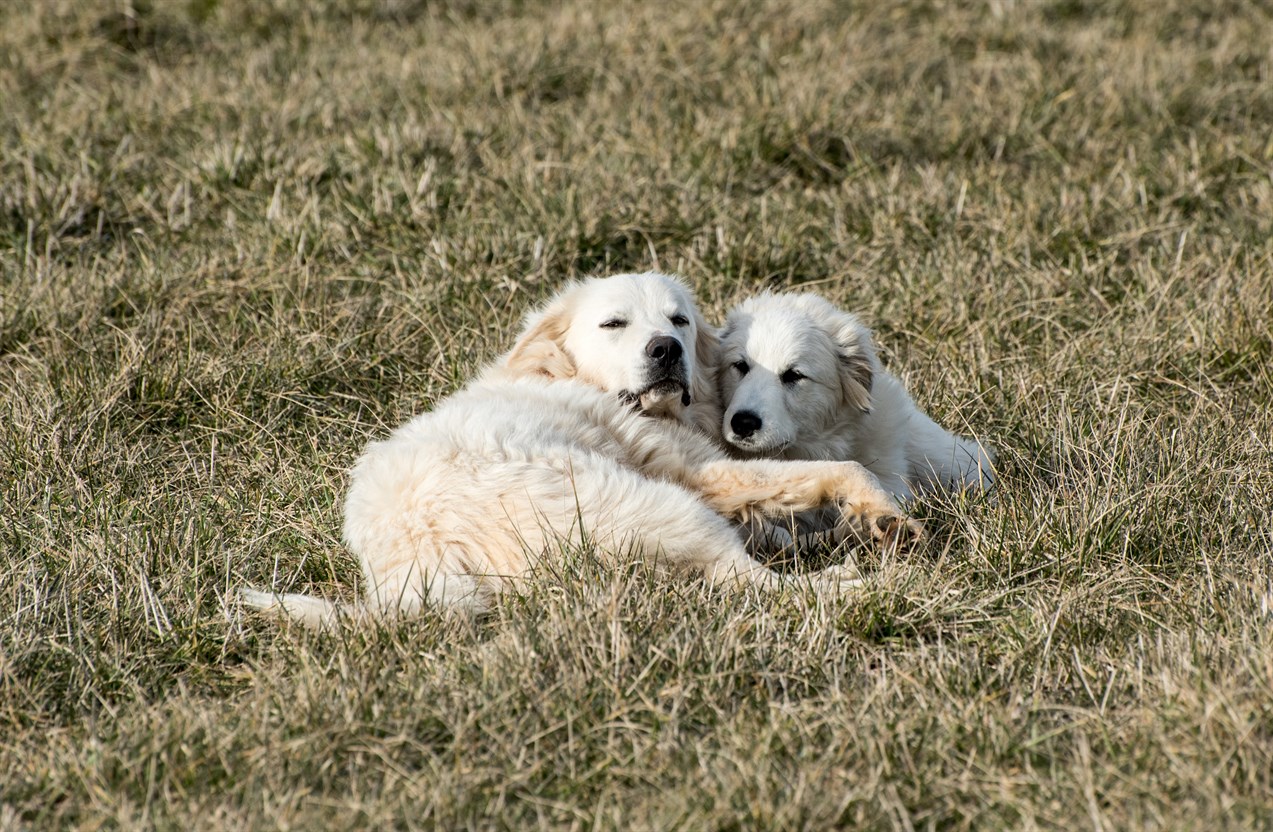Temperament and Personality of the Pyrenean Mountain Dog

The Pyrenean Mountain Dog, often referred to as the Great Pyrenees, possesses a temperament and personality as impressive as its physical stature. These dogs are known for their gentle, calm, and noble disposition, making them wonderful companions and protectors.
Gentle Giants
Great Pyrenees are often described as "gentle giants" due to their combination of size and temperament. Despite their imposing presence, they are remarkably gentle, especially with their families. They are known for their patience, particularly with children, and their natural instinct to protect those they love. This gentle nature has made them sought-after as family pets.
Protective Instincts
One of the defining characteristics of the Pyrenean Mountain Dog is its strong protective instincts. Historically bred to guard livestock from predators in the Pyrenees Mountains, they have an innate sense of responsibility for the well-being of their charges. This protective nature extends to their human families, making them excellent watchdogs.
Calm and Stoic
Great Pyrenees have a calm and stoic demeanour. They are not known to be overly excitable or hyperactive, which makes them well-suited to households seeking a more serene canine companion. Their quiet and composed nature means they are not typically prone to excessive barking, though they will alert their owners to potential threats.
Independence and Intelligence
These dogs possess a level of independence and intelligence that stems from their history as working dogs. They are capable of making decisions in the field when guarding livestock, which can translate to a degree of stubbornness in training. Owners should be patient and consistent in their training methods.
Socialisation and Timidity
Proper socialisation is crucial for Great Pyrenees. They tend to be reserved around strangers and can exhibit shyness or timidity if not well-exposed to various people, places, and experiences from a young age. Early and ongoing socialisation helps ensure that they grow into confident and well-adjusted adults.
Territorial Behaviour
Their protective instincts can manifest as territorial behaviour. Great Pyrenees may be inclined to patrol and mark their territory, which is a throwback to their livestock-guarding heritage. This behaviour can be managed through training and a secure yard.
Are the Pyrenees Hard to Climb?
The question of whether the Pyrenees are hard to climb refers to the Pyrenees Mountains, not the breed itself. The Pyrenees Mountains are indeed a formidable mountain range that stretches along the border between France and Spain. Climbing these mountains requires proper equipment, physical fitness, and mountaineering skills. It is essential to plan any mountain climbing expedition carefully and, ideally, with the guidance of experienced mountaineers or guides.
Why Do Great Pyrenees Paw You?
Great Pyrenees, like many dogs, may paw at their owners for various reasons. They might paw to seek attention, affection, or play. It can also be a sign of their gentle and affectionate nature. However, if this behaviour becomes excessive or unwanted, it can be trained out through positive reinforcement techniques.
Why Are Great Pyrenees So Gentle?
The gentleness of Great Pyrenees is deeply ingrained in their breed history. As livestock guardians, they had to be gentle with the animals under their care to avoid causing them harm. This gentle disposition extended to their human interactions, making them trustworthy and reliable partners for shepherds and farmers in the Pyrenees region.
In summary, the Pyrenean Mountain Dog, or Great Pyrenees, is a breed celebrated for its gentle, protective, and calm nature. Their blend of intelligence, independence, and a natural affinity for guarding makes them a unique and cherished breed. Proper socialisation and training are essential to bring out the best in these majestic dogs, ensuring they become loving family members and loyal protectors.
Pyrenean Mountain Dog puppies for sale
- Find Pyrenean Mountain Dog puppies for sale in ACT
- Find Pyrenean Mountain Dog puppies for sale in NSW
- Find Pyrenean Mountain Dog puppies for sale in NT
- Find Pyrenean Mountain Dog puppies for sale in QLD
- Find Pyrenean Mountain Dog puppies for sale in SA
- Find Pyrenean Mountain Dog puppies for sale in TAS
- Find Pyrenean Mountain Dog puppies for sale in VIC
- Find Pyrenean Mountain Dog puppies for sale in WA